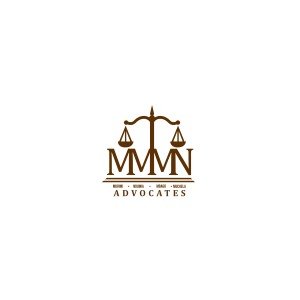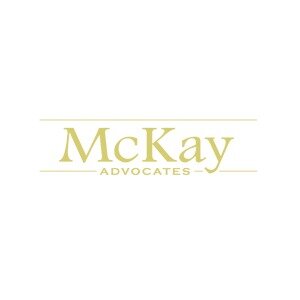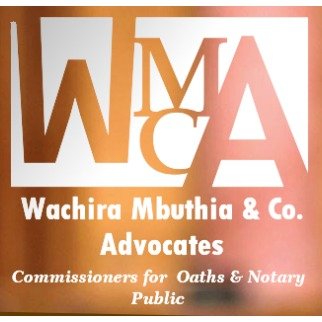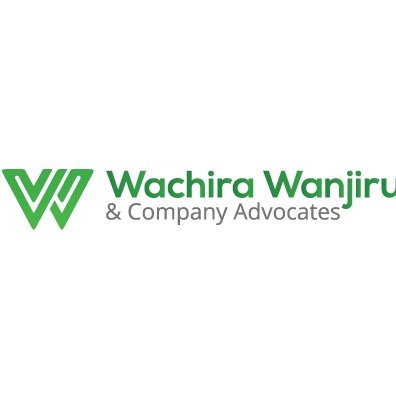Best Restructuring & Insolvency Lawyers in Nakuru
Share your needs with us, get contacted by law firms.
Free. Takes 2 min.
List of the best lawyers in Nakuru, Kenya
About Restructuring & Insolvency Law in Nakuru, Kenya
Restructuring and insolvency law focuses on helping individuals and businesses address financial difficulties, such as inability to pay debts. In Nakuru, Kenya, these legal provisions allow organizations or people facing financial distress to reorganize their debts, return to profitability, or, in some cases, liquidate assets in an orderly process. The primary goal is to balance the interests of creditors and debtors while maintaining fair and equitable treatment for all parties involved.
Kenya has made significant strides in developing a comprehensive insolvency legal framework in recent years. Nakuru, as a key commercial hub in the Rift Valley region, experiences a steady need for these legal services among business owners, farmers, professionals, and private individuals facing debt-related challenges.
Why You May Need a Lawyer
Navigating restructuring and insolvency can be complex, stressful, and time-sensitive. A lawyer specializing in this field in Nakuru can help you in various situations:
- Your company is unable to pay its debts as they fall due and risks bankruptcy or receivership.
- You have received a statutory demand or a winding up petition.
- You are a creditor seeking to recover debts from an insolvent individual or business.
- You own assets being threatened with repossession or liquidation.
- You are considering company restructuring to avoid insolvency, such as debt rescheduling, mergers, or business reorganization.
- You are an employee seeking to claim unpaid wages from an insolvent employer.
- You require guidance on voluntary versus involuntary insolvency proceedings.
- You want to understand your rights and obligations under Kenyan insolvency laws.
Local Laws Overview
Kenya’s primary legislation on restructuring and insolvency is the Insolvency Act, 2015. The Act covers corporate and personal insolvency and applies to all counties, including Nakuru. Here are key aspects relevant for people in Nakuru:
- Company Voluntary Arrangements (CVA): Allows companies in financial difficulty to enter into a binding agreement with their creditors to pay debts over time.
- Administration: Provides temporary relief from creditors and allows an administrator to manage the company’s affairs for the benefit of creditors.
- Liquidation: The process of winding up a company and distributing its assets to creditors. Can be voluntary (initiated by the company) or compulsory (court-ordered).
- Personal Insolvency Options: Individuals can pursue bankruptcy or enter into payment plans to deal with debts.
- Receiverships: Appointed when a secured creditor wants to recover debts, especially where property has been used as collateral.
- Statutory Demand Procedures: Creditors must follow legal steps before initiating insolvency proceedings, providing debtors an opportunity to respond.
- Cross-border provisions: Procedures exist for recognition of foreign insolvency proceedings affecting local businesses or assets in Nakuru.
The Commercial Division of the High Court, as well as subordinate courts in Nakuru, may handle insolvency cases depending on their value and complexity.
Frequently Asked Questions
What is the difference between restructuring and insolvency?
Restructuring refers to reorganizing a business' affairs, debts, or structure to improve its financial position and avoid insolvency. Insolvency means being unable to pay debts as they fall due, which may lead to bankruptcy or liquidation.
How do I know if my company is insolvent?
If your company cannot pay its debts when they are due, or if its liabilities exceed its assets, it may be insolvent. A lawyer can help assess your financial position.
What happens when a company is declared insolvent in Nakuru?
The company may be put into administration, receivership, or liquidation. An appointed administrator or receiver will manage the affairs or sell assets to pay creditors according to the Insolvency Act, 2015.
Can an individual declare bankruptcy in Kenya?
Yes. The Insolvency Act, 2015 provides for voluntary and involuntary bankruptcy. A person can petition the court for bankruptcy or be declared bankrupt via a creditor’s petition.
What debts cannot be written off in insolvency proceedings?
Certain debts, such as court fines, child maintenance, student loans, and government taxes, typically cannot be discharged in bankruptcy or company liquidation.
How are employees affected by insolvency?
Employees are recognized as preferential creditors, meaning unpaid wages and certain other claims are given priority during asset distribution in insolvency.
What are the responsibilities of company directors during insolvency?
Directors must act in the best interest of creditors, avoid preferential payments to specific creditors, and cooperate with insolvency practitioners. Failure to do so can result in legal consequences.
Can creditors stop an insolvency process once it starts?
Creditors may challenge or participate in the process, but stopping it depends on legal grounds, agreements, or successful restructuring proposals.
Do I have to attend court for insolvency proceedings?
Some proceedings require court appearances, especially for hearings and validation of processes, while others may be handled through documentation and correspondence.
How long does the insolvency process take in Nakuru?
The duration depends on the complexity of the case, type of insolvency mechanism used, and court schedules. Simple cases may conclude in a few months, while others can take years.
Additional Resources
If you are seeking legal advice or support regarding restructuring and insolvency in Nakuru, the following organizations can help:
- Office of the Official Receiver - processes bankruptcy and company liquidation matters.
- Law Society of Kenya (Nakuru Chapter) - can recommend qualified insolvency lawyers.
- High Court of Kenya (Nakuru) - handles insolvency petitions and related proceedings.
- Kenya Bankers Association and local financial institutions - for guidance on debt restructuring options.
- Kenya Association of Insolvency Practitioners - provides a directory of professionals in the field.
Next Steps
If you are facing financial hardship and believe restructuring or insolvency may be necessary, consider taking the following actions:
- Contact a qualified insolvency lawyer in Nakuru for a confidential consultation.
- Gather all relevant financial records, bank statements, and existing legal documentation.
- Prepare a list of your assets, liabilities, creditors, and employees (if applicable).
- Discuss available options, such as restructuring, administration, or voluntary arrangements, with your lawyer.
- Follow legal advice to avoid potential liabilities or criminal offenses related to insolvency.
Acting early increases your options and could potentially save your business or personal finances. Legal professionals in Nakuru are equipped to provide tailored advice based on your circumstances.
Lawzana helps you find the best lawyers and law firms in Nakuru through a curated and pre-screened list of qualified legal professionals. Our platform offers rankings and detailed profiles of attorneys and law firms, allowing you to compare based on practice areas, including Restructuring & Insolvency, experience, and client feedback.
Each profile includes a description of the firm's areas of practice, client reviews, team members and partners, year of establishment, spoken languages, office locations, contact information, social media presence, and any published articles or resources. Most firms on our platform speak English and are experienced in both local and international legal matters.
Get a quote from top-rated law firms in Nakuru, Kenya — quickly, securely, and without unnecessary hassle.
Disclaimer:
The information provided on this page is for general informational purposes only and does not constitute legal advice. While we strive to ensure the accuracy and relevance of the content, legal information may change over time, and interpretations of the law can vary. You should always consult with a qualified legal professional for advice specific to your situation.
We disclaim all liability for actions taken or not taken based on the content of this page. If you believe any information is incorrect or outdated, please contact us, and we will review and update it where appropriate.
















